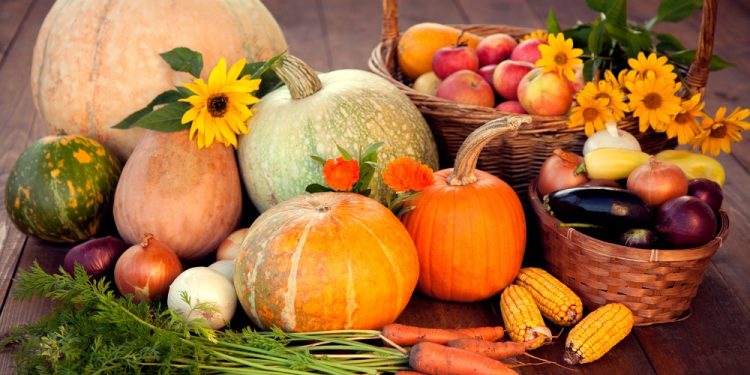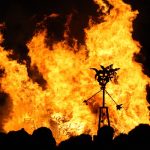
Harvest Festival
Harvest Festival is a British tradition that goes back all the way to pagan times. It is celebrated on or close to the Sunday of the Harvest Moon – which is the full moon closest to the Autumn Equinox.
This means that usually, this holiday falls around the end of September, but it may also occur at the beginning of October in some years. The purpose of this holiday is to celebrate the food that the land has provided and to give thanks. In that way, it is much like the American holiday of Thanksgiving.
History of Harvest Festival
The Harvest Festival is a holiday that can be traced all the way back to the ancient Celts when it was celebrated as the seasonal midpoint. It was during this time that people would harvest their grains, store food away for later use, and begin preparations for winter.
In Old English, the word “hærfest” meant autumn and it eventually became the word harvest. In Anglo-Saxon England, these pagan traditions continued as Lammas or “loaf mass.”
It was during this time that it became customary to ‘bless the bread’, which would later become the tradition of giving thanks for a meal. By the 16th century, a number of traditions had been incorporated into this day. Harvest Festival would continue to evolve over the next few hundred years – until it became the holiday that it is today.
Harvest Festival Customs & Traditions
Today, Harvest Festival is often celebrated with a meal that is shared with friends and family and by decorating homes with Harvest Festival motifs. It is also common for people to attend church on this day, distribute food to the needy, and sing songs or pray.
Some people make corn dolls – which are symbolic of the spirit of the harvest and have been made since pagan times. These dolls are supposed to bring luck to the next year’s harvest.
This is a tradition that can be traced back to Saxon farmers who believed that the last sheaf of corn contained the spirit of the harvest. Sometimes these are turned into children’s toys and sometimes they are hung up on farmhouses or on fences.
While some participants are trying to return this holiday to its pagan roots, most participants just see this holiday as a way to spend time with their families and to give thanks for the good fortune they have received all year long.








